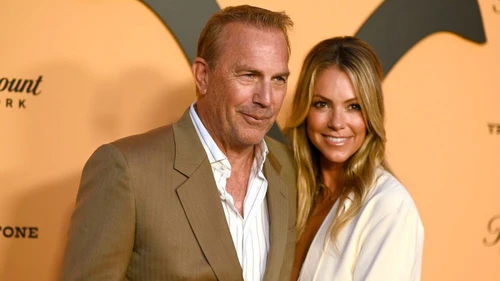
Kevin Costner Sued Over Alleged Unscripted Rape Scene in ‘Horizon: Chapter 2’
A serious lawsuit has been filed against Oscar-winning actor and director Kevin Costner, accusing him of directing an unscripted, non-consensual simulated rape scene on the set of Horizon: An American Saga – Chapter 2. The lawsuit, filed by stunt performer Devyn LaBella, has sent shockwaves through the entertainment industry, sparking urgent conversations about on-set safety and professional boundaries in film productions.
The Lawsuit at a Glance
According to the complaint, the incident occurred during filming on May 2, 2023, in Utah. Devyn LaBella, who was serving as a stunt double for actress Ella Hunt, claims that she was unexpectedly instructed to perform a graphic and violent rape scene with no prior notice, no rehearsals, and no intimacy coordinator present.
LaBella alleges that the scene was not in the original script and that she was not informed beforehand of its nature. She asserts that Kevin Costner himself gave the direction that led to the incident and that the experience left her shocked and traumatized.
Why This Case Matters
This isn’t just about one person’s claim—it’s about the wider issue of protecting performers on set. Scenes involving simulated sexual violence require extreme care, transparency, and full consent from everyone involved. The film industry has established guidelines specifically to prevent these kinds of situations, especially through unions like SAG-AFTRA.
Those protocols include the use of intimacy coordinators, consent-based choreography, and clear script approval. According to the suit, none of those practices were followed.
Alleged Breach of Industry Protocols
LaBella’s lawsuit outlines multiple violations of professional standards:
-
No Intimacy Coordinator: The scene was reportedly shot without one present.
-
No Rehearsal or Consent: The actors were not given a chance to rehearse or discuss the scene in advance.
-
Unscripted Content: The sequence was allegedly added last-minute and not part of any approved materials.
-
Unsafe Conditions: LaBella claims she was exposed to physical risk and emotional trauma without warning.
This paints a deeply troubling picture of how easily safety protocols can be bypassed—even on big-budget productions.
Kevin Costner’s Legal Response
Kevin Costner has denied all allegations through his legal team. His attorneys claim that LaBella was aware of the scene and participated willingly. They also argue that she complimented the production afterward and labeled the lawsuit as an attempt to defame him.
Additionally, Costner’s representatives have suggested that LaBella has a history of making similar claims, referring to her as a “serial accuser” in an effort to challenge her credibility.
What Was ‘Horizon: Chapter 2’ About?
Part of a multi-film Western saga directed and co-written by Costner, Horizon is intended to be a sprawling narrative about settlers and survival in 19th-century America. The first installment premiered at the 2024 Cannes Film Festival. The second chapter, where the incident allegedly occurred, was deep into production when this lawsuit was filed.
The allegations have cast a shadow over what was supposed to be a cinematic passion project for Costner.
Support from Industry Advocates
This lawsuit has reignited discussions within Hollywood about the safety and treatment of stunt performers and background actors. Many industry insiders have expressed solidarity with LaBella and called for stricter enforcement of on-set safety regulations.
It’s worth noting that stunt workers—though often unsung—face unique risks every day. When those risks extend into emotional or sexual trauma without consent, the industry must take notice and act accordingly.
How This Could Change Hollywood
The case has the potential to influence how productions are run moving forward:
-
Stricter Rules for Intimate Scenes: Studios may require intimacy coordinators on all sets, not just for lead roles.
-
Better Oversight for Stunt Work: Advocates are calling for unions and guilds to improve protections specifically for stunt performers.
-
Accountability for Directors and Producers: If proven true, this case could set a legal precedent for holding high-level creatives accountable for safety breaches.
Where the Lawsuit Stands Now
As of now, legal proceedings are in their early stages. A full investigation and possibly a trial could follow. No court dates have been set, but both parties are expected to provide statements and evidence in the coming weeks.
Public Reaction and Media Coverage
The media has jumped on the story, with many outlets drawing comparisons to previous cases in Hollywood involving on-set misconduct. Public opinion is sharply divided, with some defending Costner’s legacy and others demanding a thorough, impartial inquiry.
The film industry has faced several reckonings in the past decade—from #MeToo to union strikes—and this case could be another turning point.
Final Thoughts: Accountability or Allegation?
Until the courts sort through the facts, the story remains a mix of serious allegation and firm denial. What’s certain is this: performers have the right to know what scenes they’re filming and to give or deny consent without fear of retaliation or career damage.
Whether or not Horizon: Chapter 2 will be released as planned remains uncertain. What’s even more unclear is whether the incident marks a one-off misstep or something deeper within the film’s production culture.
FAQs
1. Who is Devyn LaBella?
She is a professional stunt performer who worked as a body double in Horizon: Chapter 2.
2. What does she claim happened?
LaBella alleges that she was instructed to perform a graphic rape scene without prior consent, rehearsal, or a script.
3. Did Kevin Costner respond to the lawsuit?
Yes. His legal team has strongly denied the claims, stating that LaBella had agreed to the scene during rehearsals.
4. Was there an intimacy coordinator on set?
According to LaBella, no. This is one of the major points of contention and alleged protocol violation.
5. What happens next?
The lawsuit is moving through the legal system. Further updates are expected as evidence and witness testimonies are reviewed.
